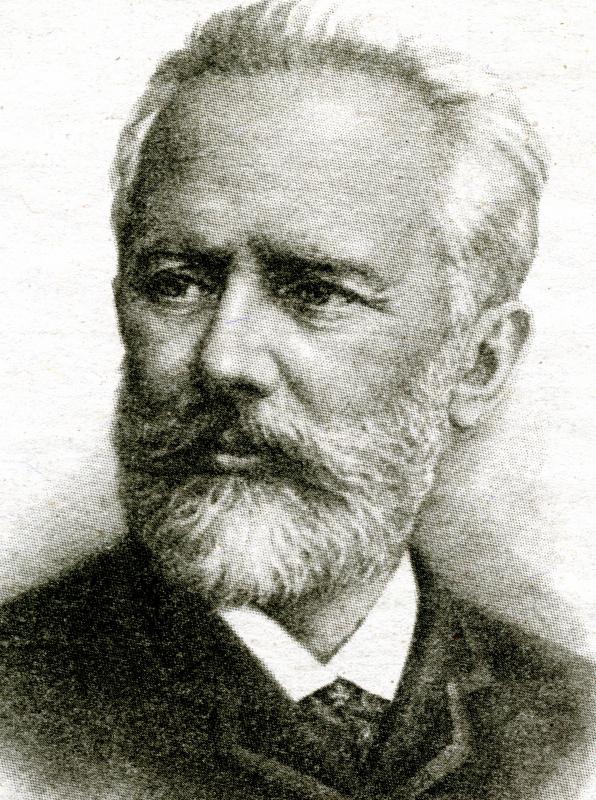At WiseGEEK, we're committed to delivering accurate, trustworthy information. Our expert-authored content is rigorously fact-checked and sourced from credible authorities. Discover how we uphold the highest standards in providing you with reliable knowledge.
Who is Tchaikovsky?
Popular Russian composer Pyotr Il’yich Tchaikovsky was born in Vyatka province in spring 1840. Introduced to music, literature, and languages as a child, he read French and German, as well as Russian, at six. He studied piano and wrote music, but was enrolled in the preparatory course for the School of Jurisprudence in St. Petersburg in 1850. He started the school in 1852 and attended until 1859. While there, Tchaikovsky wrote his first surviving piece: a waltz dedicated to his second governess in 1854.
During his last years at school, his father arranged for him to have piano lessons, and he also met an Italian singing instructor, and his introduction to Italian music helped form his taste. After some travel, he continued his study of music and entered the St. Petersburg Conservatory when it opened in 1862. He studied there for three years, and the summer before his graduation had his first public performance when Johann Strauss Jr. conducted his work Characteristic Dances at a concert near St. Petersburg in 1865.

Tchaikovsky then moved to Moscow and began to teach music theory at the school that was to become the Moscow Conservatory, taking a position that he had been offered by the director, Nikolay Rubinstein, who would conduct Tchaikovsky’s Romeo and Juliet overture in 1869. Although it was written after his first symphony, which he composed in 1866 and his first opera The Voyevoda completed in 1868, Romeo and Juliet became the first of his works to be considered part of the classical repertoire.

His first string quartet had a successful premiere in 1871, but several operas that he composed soon after did not have a critical success. Rubinstein famously dismissed Tchaikovsky’s first piano concerto as unplayable, but Hans von Bülow premiered it in Boston in 1875, and it has been a lasting favorite. By the summer of 1875, he had also completed two more symphonies.

The year 1876 marked the composition of the first of the three ballets for which Tchaikovsky may be best known, Swan Lake. The Sleeping Beauty was composed between 1888 and 1889, and Nutcracker in 1892. In 1878, he completed his fourth symphony, the Violin Concerto in D Major, and his opera Eugene Onegin. In 1880, he wrote Capriccio italien, the Serenade for Strings, and the 1812 Overture. His fifth and sixth symphonies were written in 1888 and 1893 respectively.
Tchaikovsky was invited to the inaugural concert at Carnegie Hall in 1891, where he conducted. Shortly after the premiere of his final symphony Pathétique, he became ill from cholera and died four days later.
AS FEATURED ON:
AS FEATURED ON:
















Discussion Comments
Tchaikovsky is a really fascinating figure from history and his work shows up in a lot of places that you wouldn't expect. Tchaikovsky actually did the 1812 Overture which is surprisingly played at Fourth of July celebrations every year in my hometown.
I always assumed that the 1812 Overture was by an American composer, because it sounded very big and had cannons going off throughout it. The patriotic tone of it really seemed to fit with Fourth of July, and I assumed it was tied with the Americans fighting the British in the War of 1812. This is actually not true, as it was really about Russia's defeat of Napoleon that year.
It always amazes me when classical music comes back into fashion. I was on the subway earlier and noticed a bunch of teenagers chatting. One of them actually had their phone go off, and low and behold, she had one of the Tchaikovsky ringtones on her cell phone.
I also have a Tchaikovsky ringtone on my phone because I have always loved Swan Lake and wanted to capture a bit of the ballet on my phone. I am really glad to see younger people enjoying classical music. Another really moving composition is Sleeping Beauty, and I highly recommend checking it out.
I often wonder when I hear about these people who are completely gifted at music or art, or whatever at a young age, whether they would have been as gifted if they hadn't been born into privilege.
I mean, it's easy to say Tchaikovsky was so talented when he was a boy, and of course he must have been in comparison to his peers, but at the same time, he also must have had the means to be taught how to speak all those languages.
If he had been born poor, would Tchaikovsky have loved music so much?
Or was it because he was given so many chances and happened to be good at it? I guess that's why people make the argument against poverty, that it could be depriving us of genius. But I don't know. Maybe genius would find a way.
I've heard that one of the most famous of all the works Peter Tchaikovsky wrote, the Dance of the Sugarplum Fairy, he actually hated. He was asked to compose it by the director of the ballet I believe and was given all kinds of restraints, like how long it had to be, and when it should be vigorous and when languid, and so forth.
Tchaikovsky didn't appreciate other people meddling with his composition.
Ironically, the ballet itself was not considered to be a hit when it first debuted, but Tchaikovsky's score was considered wonderful and was much more popular.
Now, of course, the whole thing is popular and considered a classic. I wonder if it was just too new for people when it first came out, or if they simply didn't like the dancers?
Post your comments